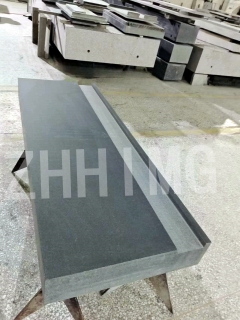Granite is a popular choice for a variety of applications due to its durability and beauty. However, the natural aging process of granite can significantly affect its suitability for specific uses, such as linear motor applications.
As granite ages, it undergoes weathering and erosion processes, which can cause changes in its physical properties. These changes may affect granite's suitability for linear motor applications where accuracy and stability are critical.
One of the key factors affecting the natural aging process of granite is its dimensional stability. Over time, granite can develop microcracks and structural changes that compromise its ability to maintain precise dimensions. In linear motor applications, even small deviations can cause performance issues, and loss of dimensional stability can be a significant problem.
Additionally, the surface quality of aging granite may deteriorate, affecting its ability to provide the smooth, flat surface required for linear motor operation. Aged granite becomes less suitable for linear motor applications due to the natural aging process that causes the formation of pits, cracks and uneven surfaces.
In addition, the mechanical properties of aged granite, such as its stiffness and damping properties, may also change. These changes affect the granite's ability to effectively support linear motor systems and dampen vibrations, which is critical to achieving optimal performance.
In summary, while granite is valued for its durability and longevity, natural aging processes can affect its suitability for specific applications such as linear motor systems. When granite undergoes weathering and erosion, its dimensional stability, surface quality, and mechanical properties may be affected, potentially limiting its effectiveness in linear motor applications. Therefore, the age and condition of the granite must be carefully considered when evaluating its suitability for use in linear motor systems.
Post time: Jul-09-2024

